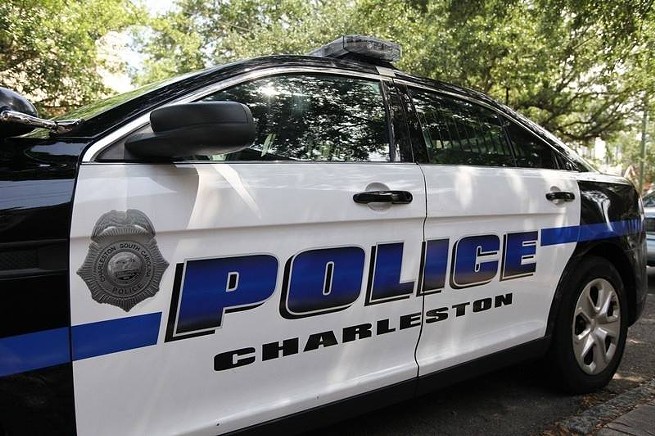May 31, 2018. Charleston City Paper.
The city of Charleston is forging ahead with a planned study of the the city’s policing tactics and whether or not they disproportionally affect African-American and minority citizens.
So far, eight consulting firms have responded to a request for proposal published by the city on May 1, according to city spokesperson Chloe Field. One of them, the Maryland-based firm Cook Ross, submitted a courtesy letter stating they were not interested in the contract.
The other seven will be reviewed by a 13-person ad hoc committee, with the final decision resting on City Council members’ shoulders.
In November, City Council voted to carve out a police department audit from Novak Consulting’s contract for an overall efficiency audit amidst concerns from activists that the firm was not qualified enough to conduct a racial bias study.
On April 4, an ad-hoc committee of city employees and Council members met to draft a scope of work for the study.
The guidelines were partially written by the Charleston Area Justice Ministry (CAJM), a social justice and advocacy group comprised of 27 area congregations. It calls for periodic updates leading to a finalized report on “areas of high performance” and “recommendations for improvement” on the department’s policing of “historically marginalized and discriminated against populations.”
“This is the first time that I felt that CAJM was given the due respect,” said CAJM member Suzanne Hardie.
In both 2016 and 2017, the group’s annual gathering drew thousands of supporters calling for an end to police pretext stops.
During the ad-hoc committee meeting in April, City Council member Keith Waring shared his own experience with pretext stops.
“My wife and I were stopped in North Charleston in what I call a pretext stop,” he said. “We were let go. Matter of fact, I felt sorry for the very young police lady that stopped us. When that was found out by our police department, it was discounted like it didn’t even happen.”
Below is a brief overview of the seven firms being reviewed by the city.
- Hillard Heintze — Chicago, Illinois
This firm counseled the U.S. Attorney’s Office while they worked with the training unit of the Seattle Police Department to “design and implement a robust use of force training curriculum that met the requirements of the [2012] Consent Decree.” Consent decrees, of course, are reform settlements between local law enforcement and the U.S. Department of Justice to help police departments improve their standards. Attorney General Jeff Sessions, a Trump appointee, is skeptical of these decrees and ordered a review of all existing and future ones in April 2017. In January, a federal judge found the Seattle Police Department to be in “full and effective compliance” of its decree. The firm also led an independent analysis of the police department in Boulder, Colo., which estimated that an African-American person is “twice as likely to be cited for a traffic or misdemeanor offense than expected based on community demographics.”
2. Coleman & Associates Consultants — Dallas, TexasConsulting on a wide-range of issues, this firm is focused on HR consulting, coaching, and assessments. Only one of its associates, Dr. Troy Coleman, is listed as having experience with law enforcement and public safety. In a 2014 review of race discrimination complaints in the Fort Worth Police Department, the firm concluded that their investigation “did not yield a hard finding of race-based discrimination,” but that supervisors and leaders were aware of behaviors and actions central to the complaints and “failed to take action that would stop the harassing behavior and correct the course of events.”
3. Police Foundation — Washington, D.C.
Founded in 1970 by the Ford Foundation as a result of the President’s Commission on the Challenges of Crime in a Free Society, this firm cites its mission as “improv[ing] policing through innovation and science.” They are currently working with the non-profit National Association for Civilian Oversight of Law Enforcement on a two-year project, supported in part by the U.S. State Department, to develop guidance on civilian oversight of law enforcement. The Police Foundation helped evaluate a Florida-based company’s anti-bias training of officers in suburban Chicago, according to the Daily Herald. They’re also working on a study to determine whether the costs associated with operating and maintaining body-worn cameras (BWCs) offset payments made out by police departments to settle civil suits.
4. CNA — Arlington, Virginia
Over the past 70 years, this firm has studied everything form the German U-boat threat to the usefulness of memes in government campaigns. They hosted a series of panels on the future of police reform, the fifth of which happened in May 2016 and featured representatives from the DOJ’s Civil Rights Division (which successfully prosecuted Michael Slager for the fatal shooting of Walter Scott in North Charleston in 2015) and the Office of Community Oriented Policing Services (which conducted a review of the North Charleston Police Department that is being withheld under Sessions’ leadership). In a 2017 study on the effectiveness of BWCs, CNA concluded: “Not only do they reduce complaints against officers and use of force incidents in large measure (and the corresponding costs of resolving those complaints and use of force incidents), they seem to increase police productivity, evidenced by the modest but significant increases in police stops and arrests.”
5. OIR Group — Playa Del Rey, California
This group is led by Michael Gennaco, a former chief attorney for the Office of Independent Review for Los Angeles County. In February 2017, OIR released its findings of an independent review of the Oxnard, California Police Department’s officer-involved shootings and in-custody deaths, which included the death of 26-year old Robert Ramirez, who died due to “active prone restraint,” according to a Ventura County medical examiner. In a December review of the Madison Police Department’s policy and procedure, the firm commended the department’s “Unpaid Ticket Resolution Days,” a program offered on a few spring weekends during 2016 that allowed people to address unpaid fines before they “exacerbate into serious obstacles through their inaction or inability to pay.” The group recommended that the department commit to a “reenergized” Racial Disparity Impact Committee by providing incentives for participation and organizational support.
6. 21st Century Policing Solutions — Chicago, Illinois
This firm lists former DOJ COPS director and Harvard Law School visiting senior fellow Ronald Davis as a primary consultant, as well as the former commissioner of the Philadelphia Police Department Charles H. Ramsey. Ramsey previously served as president of the Police Executive Research Forum, which helped the city identify Luther Reynolds as a candidate for police chief earlier this year.
7. RTI International — Research Triangle Park, North Carolina
“Social and Justice Policy” sits among this firm’s eight practice areas. RTI worked with the Bureau of Justice Statistics, part of the DOJ, to implement a program that collects data on those who die behind bars. A 2016 RIT study of 151,700 Durham Police Department traffic stops between 2010 and 2015 found that when the stops involved involved male drivers, the odds of the driver being black were 20 percent higher during daylight. The firm’s STAR online tool allows police departments to upload their traffic stop data to identify bias under the “veil of darkness,” a term used in police reform to define the increased likelihood of racial disparity in police stops conducted during daylight hours—when it’s easier to identify a driver’s race.
View original article.






